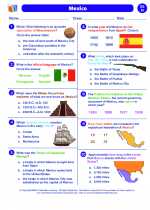Study Guide: Caribbean Sea
Location and Geography
The Caribbean Sea is located in the western part of the Atlantic Ocean, southeast of the Gulf of Mexico. It is bordered by the Greater Antilles to the north, the Lesser Antilles to the east, Central America to the west, and South America to the south. The sea covers an area of approximately 2,754,000 square kilometers.
Islands
The Caribbean Sea is home to numerous islands, including Cuba, Hispaniola (comprising Haiti and the Dominican Republic), Jamaica, Puerto Rico, and Trinidad and Tobago, among others. These islands are known for their diverse cultures, rich history, and stunning natural beauty.
Economy and Trade
The Caribbean Sea is a vital waterway for international trade, serving as a gateway between the Atlantic and Pacific Oceans via the Panama Canal. It supports a thriving fishing industry and is a major source of seafood for the surrounding countries. Tourism is a significant economic driver, with millions of visitors flocking to the region each year to enjoy its beaches, resorts, and recreational activities.
Marine Life
The Caribbean Sea boasts a diverse array of marine life, including colorful coral reefs, tropical fish, sea turtles, and marine mammals. It is a popular destination for scuba diving and snorkeling, offering opportunities to witness the beauty of its underwater ecosystems.
Environmental Challenges
The Caribbean Sea faces environmental threats such as coral bleaching, pollution, overfishing, and coastal development. Climate change poses a significant risk to the sea's ecosystems, leading to rising sea levels and more frequent extreme weather events.
[Caribbean Sea] Related Worksheets and Study Guides:
.◂Social Studies Worksheets and Study Guides Eighth Grade. Mexico
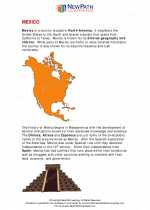
 Worksheet/Answer key
Worksheet/Answer key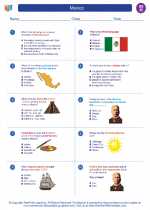
 Worksheet/Answer key
Worksheet/Answer key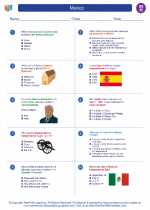
 Worksheet/Answer key
Worksheet/Answer key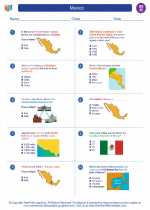
 Worksheet/Answer key
Worksheet/Answer key